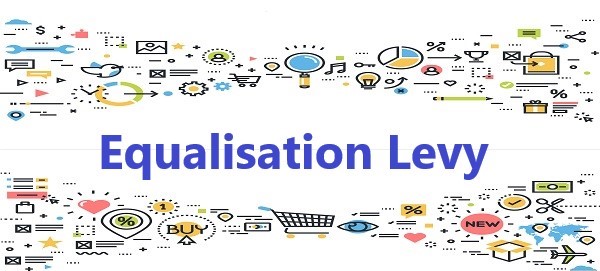
A new chapter “Equalisation Levy” is introduced by Finance Bill 2016, in income tax act, 1961.
As per income tax foreign Indian income is always taxable for all persons.
But there is an exception to this rule.
If a non resident does not have permanent establishment in India, then any income accrues in India is not taxable at all.
On the above principal there is no need to deduct the TDS for such non residents.
For example M/s XYZ Pvt. Ltd., an Indian company get the work done from ABC Ltd., a Chinese company. The ABC Ltd. does not have any branch in India, which means it has no business connection in India.
Hence any payment made by XYZ Ltd. to ABC Pvt. Ltd. will not be liable for TDS deduction since the such income of ABC Ltd. is not taxable in India. It may get taxable in China.
But there are many international transactions which do not get taxed at all, not a single time.
This is possible due to the fact that in many countries of the word the tax rate are Zero. These countries are called Tax heaven.
Many MNC’s open new companies in these countries to save tax.
The Organization for Economic Cooperation and Development (OECD), India is also member of it, has decided that a mechanism should be framed so that no single international transaction should remain untaxed.
For this reason, India has also adopted Base Erosion and Profit Shifting (BEPS) project under Action Plan 1 recommended by OECD.
Equalisation levy & Budget 2016
In addition to that India has introduced many other tools to make international transaction taxable.
Eqaulisation levy is part of It.
Finance Bill, 2016 provides that a tax called Eqalisation levy @ 6% will be paid on amount of consideration received or receivable by a non resident not having permanent establishment in India, from a resident or non resident who carries out business or profession in India.
This Equalisation levy is only application for some specified services related to digital domain.
For example, Goolge have no permanent establishment in India. An Indian company pays some amount to Google for showing its advertisements. So Eqalisation levy will have paid on such amount @ 6%.
The Google can take benefit of double taxation treaty and claim the credit for tax paid in India, in its own country.
The small service providers are excluded where the aggregate value of transaction with the single non resident person does not exceeds Rs. 1,00,000/-
The finance Act, 2016 will also define various terms various terms & expressions related to it. It will also provide the procedure for collection and recovery of eqaulisation levy.
Statutory authorities will be equipped with duties and power to administer the equalization levy.
Finance Act, 2016 will also provide for interest, penalty and prosecution rules.
This all has been provided by the Finance bill, 2016 and once Equalisation Levy is passed in both houses of parliament and get the assent of president it will become Finance Act, 2016.
The finance bill, 2016 also proposes that if any person fails to deduct and pay the equalization levy, then such any expenses related to it will not be allowed in Income tax.
The central government will notify for the date of applicability of Equalisation levy.

